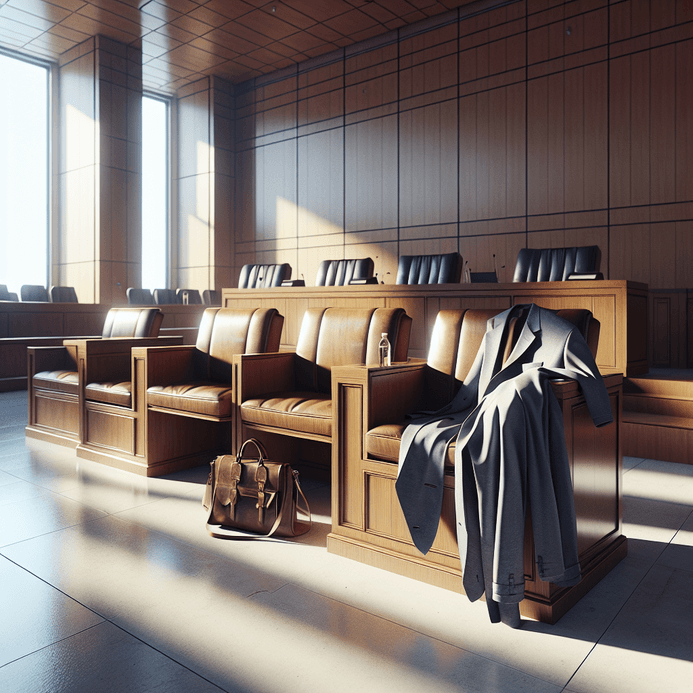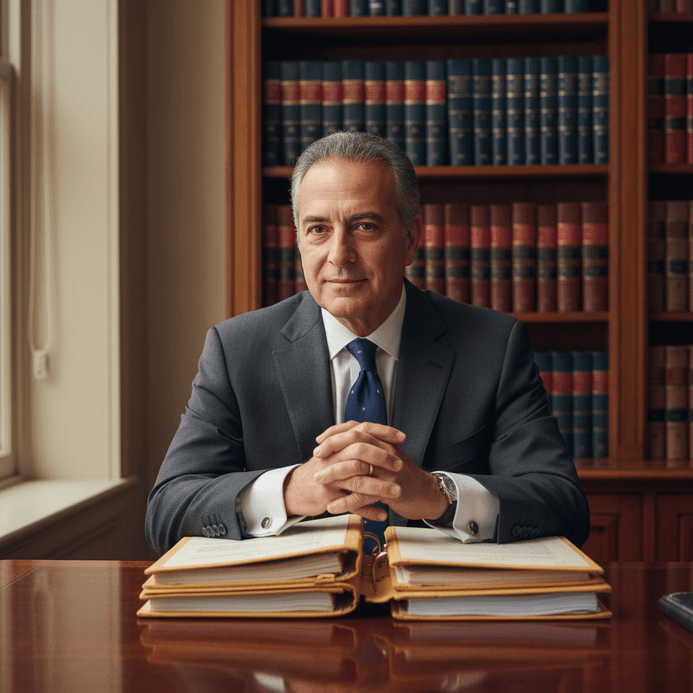Hung Jury: Definition, Consequences, and What Happens Next
A hung jury, also known as a deadlocked jury, occurs when jurors are unable to agree on a verdict after thorough deliberation. This lack of consensus can lead to significant legal consequences, ranging from mistrial declarations to retrials or even case dismissals. Jurisdictions handle hung juries differently, which can create variations in legal outcomes.
This article outlines what constitutes a hung jury, its implications in legal proceedings, and the next steps. LegalExperts.AI provides expert guidance to help individuals and legal professionals understand these complexities and navigate the potential outcomes of jury deadlock.
What Is a Hung Jury?
A hung jury refers to a scenario where the jury cannot reach the required level of agreement—either unanimous or a qualified majority—necessary for rendering a verdict. This situation often disrupts the legal process, requiring judicial intervention.
How is a hung jury defined legally?
Legally, a hung jury arises when jurors fail to achieve the consensus mandated by the specific jurisdiction.
- A hung jury differs from a mistrial in that the latter is a broader term encompassing procedural errors or external factors beyond jury decisions.
- Jurisdictions vary in defining a hung jury, with some requiring unanimous decisions and others accepting majority verdicts.
What is the relationship between a hung jury and mistrial?
Hung juries commonly result in a mistrial declaration, but not all mistrials stem from deadlocks. In cases of jury deadlock:
- Judges may declare a mistrial when subsequent deliberations fail to resolve the impasse.
- Procedural errors, unrelated to juror decisions, may also lead to mistrials in certain cases.
What Happens When a Jury Is Deadlocked?
When jurors report that they are deadlocked, judges may take specific procedural steps to attempt resolution before deciding on a hung jury declaration:
- Judges often permit extended deliberation periods and issue instructions urging jurors to reexamine their opinions.
- If deadlock persists, a mistrial may be declared, and post-trial motions can determine whether the case proceeds to retrial or dismissal.
Consequences of a Hung Jury
A hung jury introduces significant complexities into legal proceedings, often resulting in delays, increased costs, and uncertainty for all parties involved. Courts must determine whether retrying the case is necessary or feasible.
What happens after a hung jury is declared?
When a hung jury arises, the legal system faces critical decisions about the next steps:
- Immediate retrials are uncommon; legal teams often require time to reassess strategies before further proceedings.
- Prosecutors may choose to dismiss cases if evidence is deemed insufficient or release cases based on public interest considerations.
Does a hung jury mean the case is over?
A hung jury does not necessarily end a case. For instance:
- Certain cases, particularly those with overwhelming evidence, often proceed to retrial.
- In rare instances, cases may end if prosecutors elect not to pursue further action or if appellate courts intervene on procedural grounds.
Factors influencing post-hung jury decisions
The likelihood of further actions depends on several factors, including:
- Prosecutor discretion: Prosecutors weigh the merits of obtaining a conviction in a future trial.
- Judicial considerations: Judges evaluate procedural fairness and public policy implications when granting retrials.
Hung Juries in Criminal and Civil Cases
Hung juries affect criminal and civil trials differently due to the disparate stakes, evidentiary standards, and legal objectives involved in these categories of litigation.
Are hung juries more common in criminal or civil cases?
Hung juries occur more frequently in criminal cases due to stringent requirements for unanimity and the higher stakes involved, such as loss of liberty.
- Criminal defendants benefit from procedural safeguards, increasing the likelihood of jury disagreement.
- Civil trials, which typically seek financial remedies, often permit majority verdicts, reducing the incidence of hung juries.
How does a jury deadlock affect criminal cases?
Hung juries in criminal cases can lead to significant judicial and personal consequences:
- Deadlocks may prompt plea bargains, where defendants and prosecutors agree to avoid retrials.
- Defendants may experience prolonged legal uncertainty, pending prosecutorial decisions.
How are civil cases impacted by hung juries?
Hung juries in civil trials often lead to economic settlements or case dismissals rather than retrials:
- Civil litigants frequently negotiate settlements after jury stalemates to avoid additional costs and procedural delays.
- Retrials are less common than in criminal cases but may occur in disputes involving substantial sums or precedent-setting issues.
Factors That Lead to Hung Juries
Numerous social, psychological, and procedural elements contribute to jury deadlocks. Understanding these factors can guide efforts to reduce their frequency.
What causes hung juries?
Hung juries often emerge from disagreements over the interpretation of evidence or case facts:
- Jurors may weigh evidence differently based on personal biases or life experiences.
- Group dynamics like groupthink can exacerbate divisions when dissenting jurors feel pressured.
Case characteristics influencing a hung jury
Certain case-related factors heighten the likelihood of jury deadlock:
- Complex evidence involving scientific or technical details creates challenges for juror comprehension.
- High-profile cases attract extensive media attention, complicating unbiased jury deliberation.
Specific factors tied to jury unanimity
The following procedural elements affect hung jury occurrences:
- Jury size and voting requirements: Larger juries or those requiring unanimity are more prone to deadlocks.
- Instructional clarity: Misunderstood legal instructions significantly impede productive deliberations.
Landmark Cases and Policy Responses
Understanding landmark cases and reforms offers valuable insights into the challenges posed by hung juries.
What historic cases involved hung juries?
Several notable cases have involved hung juries, shaping judicial attitudes and reforms:
- High-profile criminal cases often experience multiple trials due to deadlocked juries.
- Legal scholars emphasize lessons from these cases, advocating systemic reforms to improve trial outcomes.
Policy responses and reforms addressing hung juries
Judicial policymakers have proposed reforms to address juror deadlock issues:
- Adopting qualified majority voting systems can reduce deadlocks without compromising justice.
- Simplifying evidence presentation techniques helps prevent juror confusion and deliberative errors.
Why are hung juries considered problematic by some?
Hung juries often strain judicial systems and erode public trust in trial processes:
- Repeated deadlocks consume judicial resources, creating trial backlogs.
- Enhanced juror training programs are widely considered an effective solution to reduce the frequency of hung juries.
Other Practical Insights
Hung jury scenarios demand informed decision-making to minimize adverse legal consequences and seek resolution effectively.
Can you be retried after a hung jury?
Retrials are generally permissible following hung jury declarations, but exceptions exist:
- Most cases proceed to retrial unless procedural errors or unique legal prohibitions arise.
- Double jeopardy protections typically do not apply to mistrials caused by jury deadlock.
Should you consult an attorney after a hung jury?
Legal representation is crucial when dealing with the aftermath of a hung jury:
- Attorneys provide strategic guidance to defendants weighing plea deals or retrial risks.
- Legal experts tailored to specific jurisdictions can navigate procedural complexities efficiently.
Consequences of a mistrial by hung jury
Mistrials due to jury deadlock differ from acquittals or dismissals in their treatment and implications:
- Procedural impacts include significant delays and case reassessments for both parties.
- Mistrials often renew opportunities for litigation, unlike dismissal or acquittal outcomes.
Key takeaways for understanding hung juries
Hung juries disrupt legal processes but do not necessarily conclude cases. Outcomes depend on prosecutorial decisions, judicial oversight, and the case's unique circumstances. LegalExperts.AI can assist parties in understanding their rights and potential strategies following a jury deadlock.




